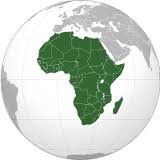 “BRICS and Africa – partnerships for integration and industrialisation” will be the theme of the fifth BRICS summit taking place in Durban in March, Minister in the Presidency for Performance Monitoring, Evaluation and Administration Collins Chabane said.
“BRICS and Africa – partnerships for integration and industrialisation” will be the theme of the fifth BRICS summit taking place in Durban in March, Minister in the Presidency for Performance Monitoring, Evaluation and Administration Collins Chabane said.
Chabane was speaking in Polokwane, Limpopo province in the first of a series of provincial roadshows aimed at engaging and consulting on the upcoming summit with local government, business and civil society representatives countrywide.
South Africa was admitted to the grouping of powerful emerging economies, which includes Brazil, Russia, India and China, at the third annual summit of the bloc’s leaders in China in 2011.
Chabane said the fifth summit – taking place at Durban’s International Convention Centre from 25 to 27 March – would have four key focus areas, namely the promotion of African infrastructure development, and the establishment of a BRICS-led development bank, a BRICS think-tank and a BRICS business council.
Context of Africa’s development challenges
The minister said South Africa’s membership of BRICS should be understood in the context of the country’s aim to tackle the developmental challenges faced by Africa as a whole, and its strategic focus on infrastructure as a key vehicle for creating jobs, boosting Africa’s overall competitiveness, and promoting regional integration on the continent.
“We wish to align [BRICS member countries’] interests in supporting the integration agenda in Africa, and not just focusing on access to our resources,” Chabane said.
He noted that BRICS leaders, at the third BRICS summit in Sanya, China in 2011, had declared their support for African infrastructure development and industrialisation within the framework of New Partnership for Africa’s Development (Nepad).
And at the fourth BRICS summit, in New Delhi in India in March-April 2012, South African President Jacob Zuma met with BRICS captains of industry, inviting them “to join hands with South Africa in the development of the African continent”.
Unlocking Africa’s potential
South Africa’s accession to the BRICS grouping was in large part premised on the country’s role as a financial and logistical gateway to sub-Saharan Africa, and on the continent’s huge economic potential.
“Africa is the fastest growing power after Asia and offers the highest returns on investments of any region,” Chabane told his audience on Wednesday.
“The African continent constitutes 60% of the world’s unused arable agricultural land. In 2010, six of the world’s fastest growing economies emanated from Africa, and Africa’s output is expected to expand by 50% over the next four years. Economic growth is expected to expand by an average of 5.5% annually in the next five years.”
Towards a more equitable global order
It was this potential, combined with the economic power of Brazil, Russia, India and China, that would enable the BRICS grouping to pave the way for “a new global pattern focusing on South-South relations … overriding previous East-West and North-South constructs and divisions,” Chabane said.
This was in line with the underlying principle for South Africa’s partnership with BRICS, that of advancing the role of emerging economies in international relations, ultimately to help fashion a more equitable global political and financial architecture.
“With South Africa’s unique history and independent foreign policy, we bring our own experience and perspective to the BRICS collaboration,” Chabane said, urging South Africans to come together and support it, and the upcoming Durban summit, “as it brings development not just for us but for the whole African continent”.
